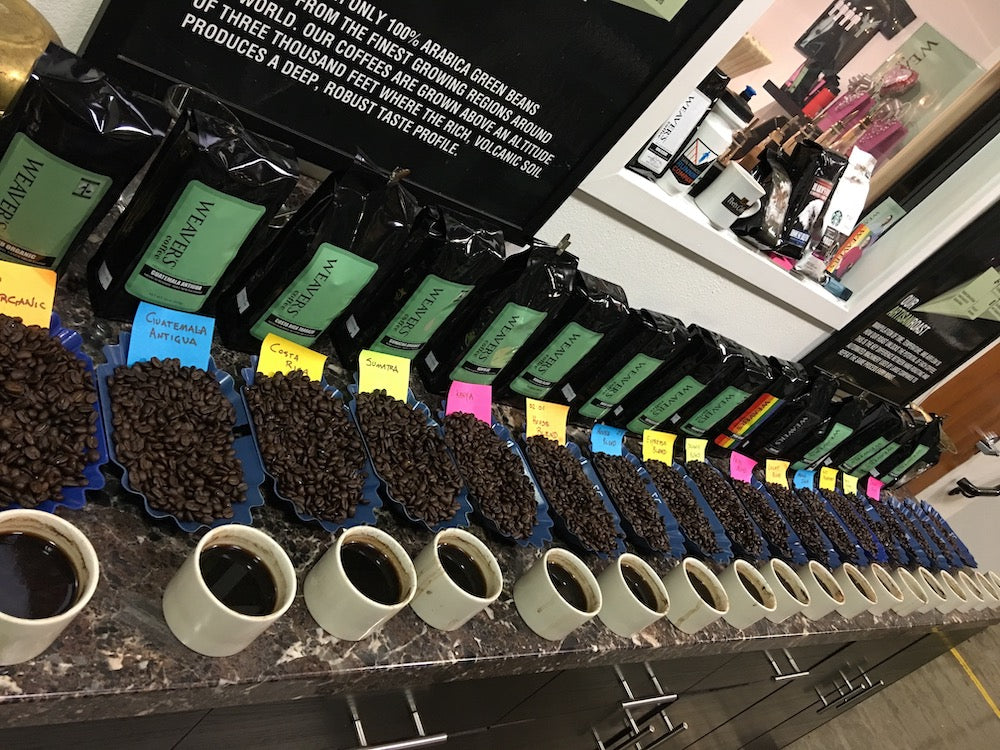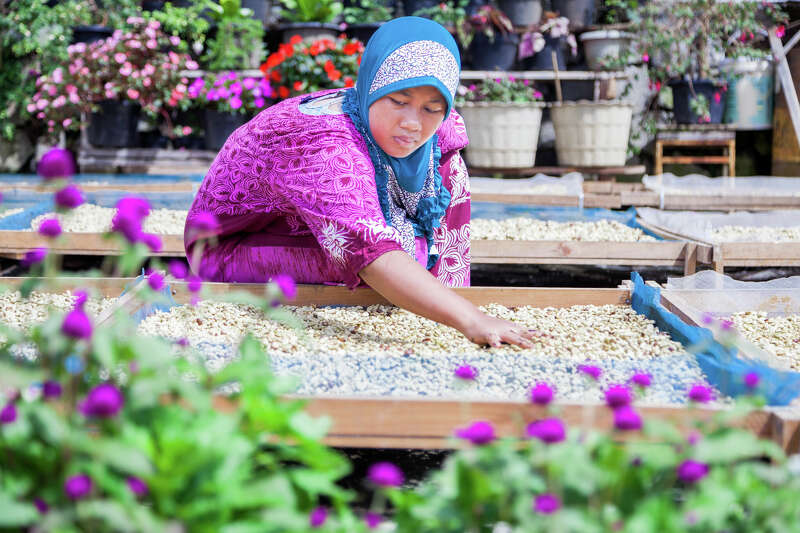Add description, images, menus and links to your mega menu
A column with no settings can be used as a spacer
Link to your collections, sales and even external links
Add up to five columns
Add description, images, menus and links to your mega menu
A column with no settings can be used as a spacer
Link to your collections, sales and even external links
Add up to five columns

Coffee Near Me
March 07, 2022 7 min read
Coffee Near Me
If you're looking for the best coffee near you, there are a few things you can do to find it.
- How to buy coffee online? Check online reviews. This is a great way to get an idea of what other people think of different coffee shops and brands. You can find reviews on websites like Yelp, Google Maps, and TripAdvisor.
- Where to buy coffee online? Ask your friends and family for recommendations. People who know you well will be able to recommend coffee shops that they think you'll like.
- Visit different coffee shops and try their coffee. This is the best way to find a coffee shop that you love. Once you've found a few places that you like, you can start to experiment with different coffees.
Coffee near me and coffee shops near me used to be associated only with the online search for a local coffee shop. That’s changed: now it includes typing coffee nearby me and shop now for coffee into a computer or mobile device. Physical distancing has led to unconventional ways of integrating new people, new products and new purpose within digital spaces. Convenience in particular has become a major factor. So, instead of going to a coffee shop, consumers working from home or simply socially distancing at home prefer to buy coffee online so it ships right to their front door and they can brew the coffee at their own convenience.
Searching for a new life-work-balance within the reality of a multiyear global pandemic, countless people have regularly woken up thinking, What are my priorities? What is truly important to me, and the people closest to me? Where can I buy coffee online? What is the best coffee for me?

Weaver's Coffee & Tea coffee cupping in San Rafael, California
Photo Credit: Renee Brown
One thing that hasn’t changed is that everyone still has a morning ritual that usually includes a cup of coffee or a cup of tea. “Sixty-two percent of Americans drink coffee every day and the average American coffee drinker drinks just over three cups of coffee a day,” according to the National Coffee Association. So while the pandemic has set us adrift over the past few years, coffee has kept us anchored firmly near shore. Relaxing into a couple of cups of delicious coffee helps millions of people prepare for their day. However, even as the daily consumption of coffee has continued, the way we shop for the coffee we brew and drink at home has changed. We may be distanced from family and our “before-times” shopping and consuming habits, yet we’re still close via zoom and online shopping. So, how do we maintain the small, comforting rituals in our daily lives? Can we find ways to help others and support local, national, community, and even global organizations? Can you buy coffee online and support community organizations with your purchase? If so, how do we know that a company we see online is legitimate, and has a real person working their magic to roast delicious coffee?

John Weaver roasting coffee in San Rafael, California
Photo Credit: Renee Brown
One of the rock stars of the coffee industry is Weaver's Coffee & Tea, the leader in fresh, hand-roasted, artisanal coffee and fine, hand-blended tea for consumers and businesses. Weaver’s features the best coffee on several fronts: it’s delicious, healthy and good for the environment. The customer gets a great cup of coffee and through their purchase they help support local community organizations and coffee farmers across the world. One new product in particular is a sustainable single serve coffee, Weaver’s Steeped Coffee, which is a single cup compostable bag of fresh coffee, triple nitrogen flushed into a biodegradable package. In addition to its convenience, this is a wonderful way to replace the K-cup pods that are so bad for the environment.

Weaver’s Steeped French Roast Coffee
Photo Credit: Kevin Erdman
The crew at Weaver’s Coffee & Tea includes Renee Brown, a brilliant entrepreneur blazing a path in the specialty coffee, and John Weaver, the company’s master coffee roaster, a living legend who has worked as a coffee roaster for more than 44 years. Weaver was trained to roast coffee by Alfred Peet and Sal Bonavita the fathers of Specialty Coffee. Being social entrepreneurs, the crew at Weaver’s Coffee & Tea believe in contributing to the local and global economy and have been doing so since 2013. They also donate pop-up coffee shops to help raise money for charity organizations and fundraising events across California. Globally, they source more than 70 percent of their coffee through Fair Trade Certified™ farms from along the equatorial belt. Fair Trade Certified is an organization that changes the world one cup at a time—an easy way for consumers to support sustainable agriculture. Thousands of coffees bear the Fair Trade Certified™ seal, which helps to improve millions of lives and protect the land and waterways in 62 countries and counting. Purchases have resulted in $846 million being given to farmers and workers since 1999.

Sumatran Coffee Farmer
Photo Credit: Fair Trade Certified
When you're choosing a coffee shop, there are a few things to keep in mind.
- The quality of the coffee. This is obviously the most important factor. You want to find a coffee shop that uses fresh, high-quality beans.
- The atmosphere. Do you want a coffee shop that's quiet and relaxing, or one that's livelier and more social?
- The service. Do you want a coffee shop with friendly and attentive staff?
While consumers now brew more coffee at home, they are seeking better choices than what they find in their local supermarket, which tends to be lower quality, mass produced coffee in a can or a pod. Consumers, especially hardcore coffee drinkers, seek authenticity, quality, and consistency in their cup of coffee. Many of them have realized that brewing coffee at home during the pandemic has saved them a lot of money, even thousands of dollars, as they no longer make a daily run to a coffee shop. It’s emboldened them to explore how to buy coffee online and shop for better specialty coffee, a trend that is forcing retailers and roasters to adapt to a new reality.
Many coffee drinkers have also decided to spend time learning about specialty coffee, their curiosity about what is in their daily dose piqued, and their interest in health stimulated by pandemic news coverage. In general, consumers wanted a “new me” in the “new year,” spending time on the treadmill or the bike to improve their physical and mental health. Similarly, skincare searches are up 600% since the pandemic began because people want to look good when they appear on screen during Zoom meetings. Furthermore, seeking knowledge about specialty coffee or tea, consumers have been investigating where their coffee comes from, how it is grown, who farms and processes it, and how it is roasted, bagged, and shipped. In learning about specialty coffee, many consumers have discovered that climate change is affecting the world’s coffee growing regions. “A new model predicts an overall decrease by 2050 in total land area that is suitable for growing coffee. Four of the top five producers of coffee in the world (Brazil, Vietnam, Colombia, and Indonesia) are projected to have their best areas for growing coffee decrease in size and suitability” (National Geographic).
Finding out that in 30 years some of the coffees we take for granted may not be available is a mind-blowing proposition for consumers dependent upon a certain specialty coffee from a specific country. The impact on the people at origin and along the supply chain will be even more profound. “The Colombian coffee industry plays an important role in Colombia’s economy. In fact, over 540,000 small family-owned coffee farms spanning 23 departments comprise the Colombian coffee industry and represent 69% of the total production in Colombia. It is estimated that about 2 million people in Colombia rely on the coffee industry to make a living” (Tridge.com). While it may be unfathomable that some coffees may be impossible to grow in countries currently renowned for their coffee industry, these changes will affect us in the future.
However, many people today are re-evaluating their priorities based on uncertainty about health and the economy, and this change is reflected in their purchases on a local, national, and global level. As one example, consumers are demanding authenticity from commodity products like specialty coffee and tea. Finding artisans like the Weaver’s Coffee & Tea team, who support local, national, and global communities, is not easy, but it is possible with some time and research. Coffee near me or coffee shops near me could be around the corner or as close as your computer or mobile phone. If coffee is a daily ritual that you know and love, it’s worth doing the research and choosing where to buy coffee online, knowing that each purchase you make will change the world one cup of coffee at a time.
Subscribe
Sign up to get the latest on sales, new releases and more …
